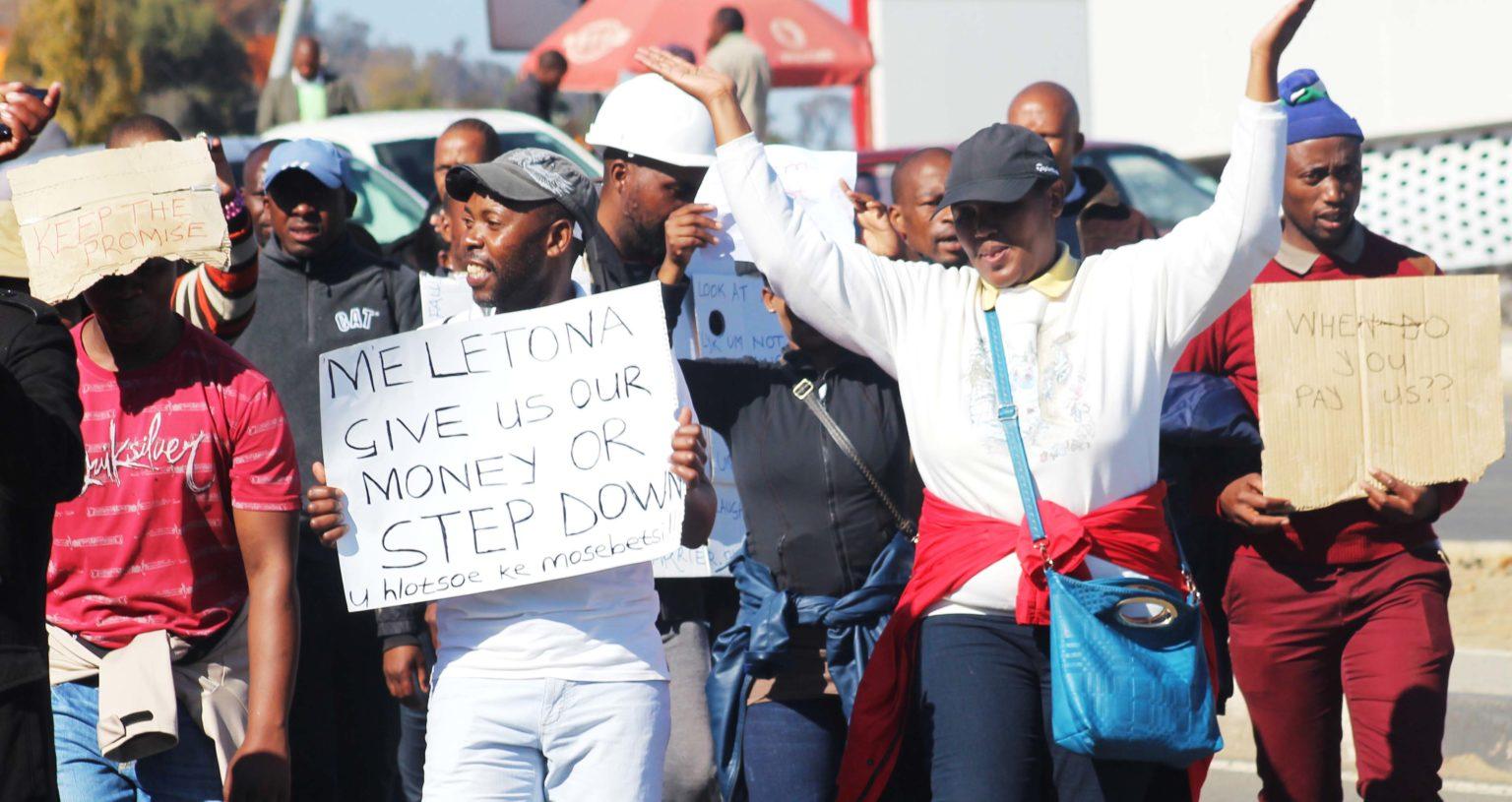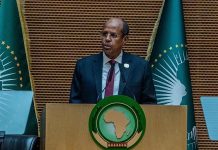Africa-Press – Lesotho. The government is worried that frustration among unemployed youth could spill out into the streets leading to an uprising. In its draft document titled: Youth Employment Stimulus Programme, government says the youth unemployment rate in the country is among the highest in the world.
The document was prepared by the Prime Minister’s delivery and accountability unit and shared with a group of young people known as #BachaShutdown this week inviting the pressure group to make their inputs today (Friday).
A member of the BachaShutdown, Tumelo Moteuli, confirmed this but when contacted yesterday to verify the authenticity of the documents, Prime Minister’s press attaché, Buta Moseme, referred this paper to Dr Maluke Letete, the economic advisor to the prime minister.
Letete flatly refused to say whether he knew about the document. “What is Bachashutdown? Is it registered? I do not speak for them. Did you get the document from the Office of the Prime Minister? If not then I cannot speak with you about a document you did not obtain in a proper way,” he added.
“The continued high rate of youth unemployment in Lesotho presents a serious risk to the promotion of an inclusive economy and society, and has started to ignite an uprising which will potentially result in instability,” reads the document.
It indicates that the unemployment situation was worsened by the COVID-19 pandemic. “The pandemic has had an unprecedented impact on the economy that has left a number of people out of work, with young people, women and less skilled people worst affected,” it reads.
With the youth employment stimulus programme, the government aims to enhance national capacities to promote intensive employment growth. It also aims to enhance youth skills and competencies for employability and enterprises’ competitiveness.
It is anticipated the programme will run for three years to 2024 and will cost taxpayers an estimated M1.4 billion. “The programme’s overall objective is to create jobs for the youth, with one of the focus areas being through the support of productive self-employment, reads the government document.
It adds: “It also aims to consolidate the previous interventions targeted at the addressing youth unemployment crisis and targets about 40,000 young people who will be engaged during a three-year period on a rotational basis, with the estimated budget of M1.4 billion.
On July 2, this year, Public Eye published the findings of a recent assessment done by the World Bank which found that youth unemployment in Lesotho is among the highest in the world, and three times higher than the average rate observed in other lower-middle-income countries.
The assessment provided an analysis of how effective Lesotho is in establishing a social protection system that responds to the needs of the people, and its findings and recommendations were contained in a report titled: Lesotho Social Protection Programs and Systems Review.
“Basotho suffer from both high inactivity and unemployment. High youth unemployment creates a specific vulnerable group not typically captured in lifecycle perspectives on social assistance,” read the report.
Apart from the very high jobless rate, the World Bank stated that the other particularly disturbing trend was that more and more people had become discouraged and had given up looking for work.
It said: “Half of the working age population is not participating in the labour market (does not have a job nor is looking for one), constituting a huge untapped potential for economic growth.
” In its document shared with the youth this week, the office of the prime minister said the current youth unemployment crisis has far reaching implications.
“First”, it stated, “it will lead to many negative outcomes in terms of both material and mental wellbeing”.
It said a spell of unemployment at an early stage of a worker’s career imposes a persistent wage penalty that could last for their entire working lifetime, the effect known as “scarring”.
“They will be pushed into poverty traps with little or no hope to escape such traps. There is across country evidence of greater mental health problems among people in their 40s or 50s.
The effects of such long-term scarring and the reasons for it appear inter-connected,” it said. “For instance, wellbeing and mental health may affect subsequent income and chances of getting and keeping a job, but are themselves influenced by unemployment,” it added.
The office of the prime minister said some broad overlapping reasons for scarring include: employer responses, the person’s human capital, their expectations, job search and the influence of external factors in the economy and society.
It further indicated that the country’s high youth unemployment also presented a cost to the country’s fiscus. For instance, it said, the government provides study loans through the National Manpower Development Secretariat (NMDS) to Basotho who get admitted to tertiary institutions in Lesotho and South Africa.
After graduating, the beneficiaries are expected to repay a specified percentage of the loan. “Without a job and income, this cannot be achieved,” it sated.
“Furthermore, if the youth are left with no alternative but unemployment and poverty, they are more likely to join a rebellion. 3⁄4 the phenomenon that is currently beginning to emerge in the country,” it added.
The government also admitted that crime statistics indicate that youth are engaging in criminal activities such as robbery, drug related offences and murder, as an alternative way of generating an income.
“Thus unemployment has become a crisis that requires immediate interventions and can no longer be ignored,” it said.
For More News And Analysis About Lesotho Follow Africa-Press






